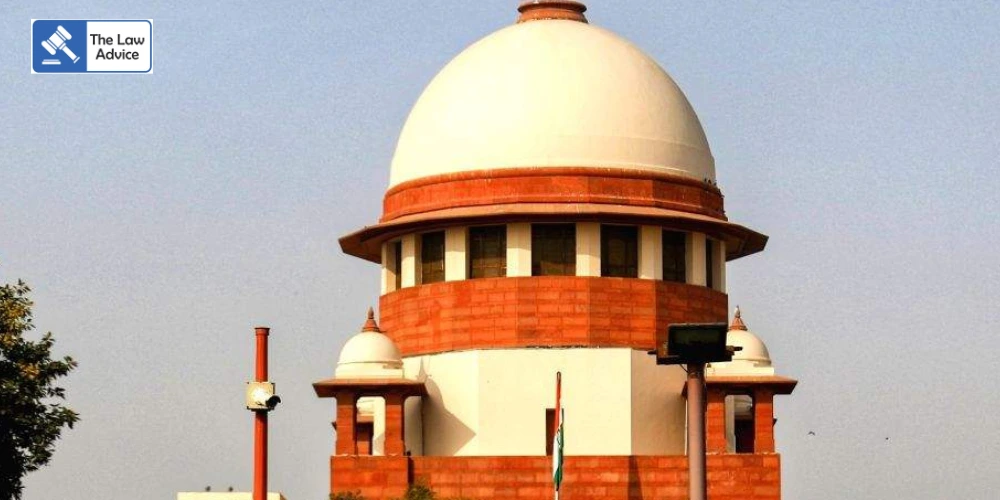The Supreme Court of India has advised the Commission for Air Quality Management (CAQM) to avoid imposing a blanket ban on construction activities in Delhi-NCR during the winter season, observing that such prohibitory measures adversely affect the livelihood of thousands of daily wage construction workers.
The bench comprising Chief Justice of India BR Gavai and Justice K Vinod Chandran directed the CAQM to hold detailed deliberations with all stakeholder states – Delhi, Haryana, Punjab, Uttar Pradesh, and Rajasthan – and come up with concrete pollution-control strategies instead of resorting to sweeping bans. The Court has given CAQM three weeks to submit its plan.
Court’s Concern: Livelihood Loss, Compensation Issues
The bench highlighted that stopping construction activity during the pollution season has serious socio-economic consequences, particularly for migrant workers who travel from different parts of the country in search of work.
The Court remarked:
“Stopping the construction work also has other consequences; workers moving from different parts of the country are without any work during those periods. As far as the compensation that is paid to the said workers, they have also written that various applications have been filed before this Court, alleging that the compensation is not properly paid.”
The Court acknowledged repeated complaints that compensation schemes for workers affected by such bans are either delayed or not implemented properly.
Past Measures Under GRAP
In previous years, the CAQM enforced a ban on construction and demolition (C&D) activities under the Graded Response Action Plan (GRAP) whenever pollution levels in Delhi-NCR crossed severe thresholds. This was aimed at curbing dust emissions, one of the largest contributors to winter smog.
Earlier in February 2025, a bench of Justice Abhay Oka and Justice Ujjal Bhuyan had directed NCR states to pay timely compensation to construction workers affected by these closures. However, the Supreme Court is now questioning whether such blanket prohibitory orders are counterproductive and whether more scientific, targeted solutions are possible.
Directions On Pollution Control Board Vacancies
The Court also expressed concern over the large number of vacancies in State Pollution Control Boards (PCBs) across NCR states, observing that inadequate manpower directly hampers environmental governance.
• Haryana: Out of 173 vacant posts earlier, now only 43 remain unfilled.
• Punjab: More than 600 posts sanctioned; vacancies reduced from 300 to 40.
• Uttar Pradesh: Out of 732 sanctioned posts, 566 are filled; 166 posts remain vacant.
• Rajasthan: Out of 808 sanctioned posts, 250 remain vacant.
On the Central Pollution Control Board (CPCB): 147 vacancies exist out of 603 sanctioned posts.
On the CAQM: Out of 56 sanctioned posts, 38 are filled, 18 remain vacant, with 11 contractual staff deployed.
The Court directed that:
• All NCR states must fill PCB vacancies within 3 months.
• For the next three months, appointments may be made on contractual or deputation basis given the urgency of the winter season.
• Promotional posts must be filled within 6 months.
• The Union government must fill CPCB and CAQM vacancies within 3 months.
• The post of Permanent Member and Member Secretary of CAQM must be filled within one month.
The Court noted that earlier in May 2025, it had even issued contempt notices to the Chief Secretaries of Delhi, Haryana, UP, and Rajasthan for failing to comply with its earlier directive to fill vacancies by April 30, 2025.
Amicus & Government Representation
ASG Aishwarya Bhati appeared for the Union government, while Senior Advocate Apprajita Singh assisted the Court as amicus curiae in the matter.
This hearing was part of the long-standing environmental litigation MC Mehta v. Union of India [WP (C) 13029/1985], under which the Supreme Court has been continuously monitoring Delhi-NCR air pollution control measures.
The Supreme Court’s latest direction signals a shift in judicial thinking: instead of blanket bans that cripple livelihood, authorities must now find scientifically sound, practical, and humane solutions to the Delhi-NCR pollution crisis. With the winter season approaching, the Court’s insistence on staffing PCBs and finding alternative pollution-control measures is expected to push governments into faster compliance and innovation.
